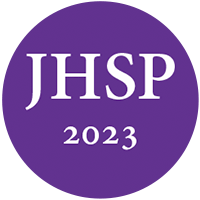The professional home for health service psychologists.
Join a community of 15,000 psychologists and trainees.
Learn it today. Apply it tomorrow.
Connecting you to what you need in your career.
Making a difference.
Hutman, H. & Ellis, M. V. (2023). Harmful and Inadequate Supervision Post-Pandemic: Complexities and Considerations. Journal of Health Service Psychology, 49(4). https://doi.org/10.1007/s42843-023-00094-9
The COVID-19 pandemic altered the nature and scope of clinical training and supervision in profound ways (Soheilian et al., 2023). Supervisors and supervisees were forced to adapt to online platforms for supervision and psychotherapy essentially overnight and often without training. Faced with myriad stressors and constraints, clinical supervisors have struggled to support trainees and protect clients. Through the illustrative case of Sandra, a clinical supervisor at a University Counseling Center and Training Director for the predoctoral intern cohort, this paper details the process by which these stressors and constraints understandably led to Sandra’s burnout and gave rise to inadequate and harmful supervision. The clinical challenges and considerations reflected in Sandra’s situation are discussed with particular emphasis on the importance of developing and maintaining clinical supervision competencies.
Continuing education course available on CE.NationalRegister.org
The National Register of Health Service Psychologists is approved by the American Psychological Association to sponsor continuing education for psychologists. The National Register maintains responsibility for this program and its content.
The National Register of Health Service Psychologists is recognized by the New York State Education Department’s State Board for Psychology as an approved provider of continuing education for licensed psychologists #PSY-0010
Copyright © 2025 All rights reserved. National Register of Health Service Psychologists





